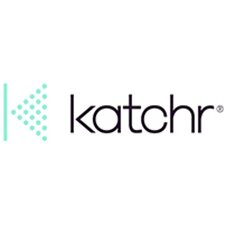Katchr Conference 2019 – John Chisholm on value billing
At our user conference back in June, one of the talks that had people most engaged and exercised was John Chisholm’s session on value pricing. There is nothing like a debate around the billable hour to get a room full of lawyers and law firm finance professionals excited.
However what really struck home to me was when John talked about value based pricing being a business model change not a pricing model change.
That got me thinking. I talk a lot with our clients and potential clients about the Katchr business model; about the virtuous circle of monthly software-as-a-service licensing leading to greater incentive for suppliers to add value and that value being rewarded with long term benefits for both parties. However it struck me that when we talk to law firms about their business, about goals, objectives, priorities, programs, it is very rare that anyone starts by articulating the fundamental business model.
Is that because everyone thinks it’s obvious? Do all law firms have exactly the same business model?
I think not. But I also think that many people still believe there are only one or two viable business models for delivering legal services.
When I survey the firms we work with at Katchr, I see lots of very good firms working hard to optimise their implementation of the traditional model of legal services: delivered by professional lawyers charged for on some form of time-based billing. Where is the innovation? I think most law firms still see their future as being a better-optimised version of their current self.
When I compare the modern software as a service business model with the traditional perpetual licence purchase model, I focus on, and am most convinced by, the alignment of objectives. Both parties – supplier and customer – want essentially the same thing: a long-lasting relationship where cost is incurred as value is received. The old perpetual licence model put each party virtually in opposition and created an incentive for suppliers to end-of life products regularly to maximise income.
Looking at the traditional legal services business model, I can’t help thinking that there is a similar misalignment of objectives. Clients (according to most surveys) want first and foremost to have their problem solved as quickly as possible. And law firms? Their business model dictates that the longer it takes the higher their income is.
Yes, I know this is an over simplification, but surely the legal services models of the 21st century will have to address this fundament conflict.



